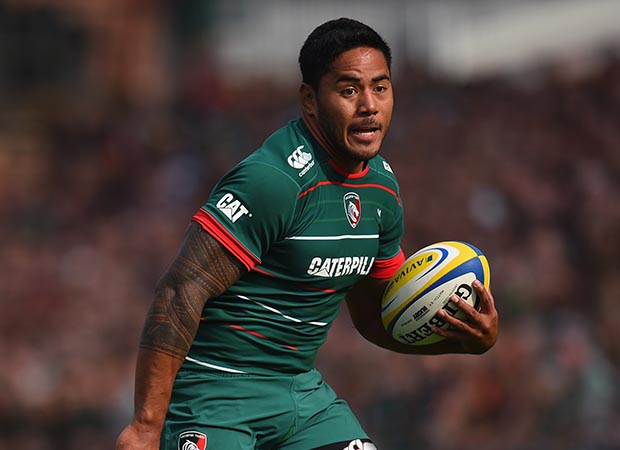 If any England player was likely to stray off the straight-and-narrow then Manu Tuilagi was always a prime candidate. That was what happened when Tuilagi was arrested by police at 3am in Granby Street in the centre of Leicester on Sunday, April 26, and charged with assaulting two women police officers and a taxi driver.
If any England player was likely to stray off the straight-and-narrow then Manu Tuilagi was always a prime candidate. That was what happened when Tuilagi was arrested by police at 3am in Granby Street in the centre of Leicester on Sunday, April 26, and charged with assaulting two women police officers and a taxi driver.
Tuilagi was in an altercation with the taxi driver which resulted in him grabbing the man by the throat and kicking his car's wing mirror. Then, when the police officers arrived on the scene, he pushed both in the chest as they tried to handcuff him.
Tuilagi, who turns 24 this week, now has to contemplate his world being turned upside down after a hearing on Thursday at Leicester magistrates court at which he pleaded guilty to three counts of assault, and one of criminal damage. He was ordered to pay £6,205 in fines, compensation, charges and costs.
It was an admission of unacceptable behaviour, and in the immediate aftermath England head coach Stuart Lancaster took the only path open to him by banning Tuilagi from national selection for the rest of the year. The hammer blow is that he will miss the World Cup despite recent hopes that he would be fit for the England training camp despite being out of action for almost the entire season with a groin injury.
There has been little sympathy for a player who became a national rugby hero two and a half years ago after playing a seminal part in a famous England victory over world champions New Zealand.
On that occasion the barnstorming Leicester centre blasted through the New Zealand defensive line on three occasions, creating two tries and scoring another from an interception. Now, he has fallen so far so fast that no-one fits the cliche ‘hero to zero' so completely. Forgiveness is in short supply, with Sir Clive Woodward even suggesting that his England career could be over.
Nothing excuses Tuilagi's behaviour, but my view is that his fall from grace is not altogether surprising given a background that is even more dislocated and surreal than that which envelops many young professional sportsmen.
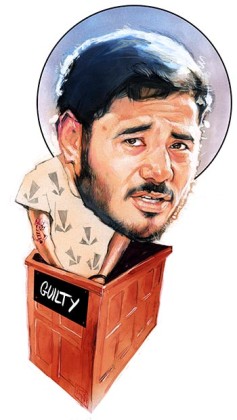 Twelve years ago Tuilagi was a 12-year-old boy sat around a communal TV in his home village of Fatausi-Fagapoa in Samoa with friends and family, watching Woodward's eventual 2003 England world champions being given a hard time by his Pacific island countrymen. One of seven boys in the family raised by his father Tuilagi Vaevae, a high chief and one-time deputy speaker in the Samoan government, and mother Aliitasi, who ran the village shop, he was already steeped in rugby.
Twelve years ago Tuilagi was a 12-year-old boy sat around a communal TV in his home village of Fatausi-Fagapoa in Samoa with friends and family, watching Woodward's eventual 2003 England world champions being given a hard time by his Pacific island countrymen. One of seven boys in the family raised by his father Tuilagi Vaevae, a high chief and one-time deputy speaker in the Samoan government, and mother Aliitasi, who ran the village shop, he was already steeped in rugby.
His eldest brother, Fereti, had played for Samoa in the 1995 World Cup, and two more brothers, Henry and Alesana, would soon go on to do so. Fereti had also blazed a trail that led to Leicester's door, joining the club as a wing/centre in 2000 and going on to become an adopted son at Welford Road, where he was dubbed Freddie.
Freddie ensured that the Tigers were well supplied with super-powered young Tuilagis with Henry, Alesana, Anitelea, and Vaevae all playing for the club, or its academy side, before Manu, the youngest brother, arrived to live with them in their communal house at the age of 13.
When he arrived he could barely speak English and he has said that this made life tough for him at John Cleveland College, the Hinckley school where he was enrolled. As for home life, he said he accepted his role as house slave willingly.
“It was expected of me to make the drinks, clear up, answer the door, in fact everything – and if I did something wrong then one of my brothers would sort me out. You always respect your elders, and it remains the same today.”
It is likely that the pastoral care exercised by his brothers, if sometimes heavy-handed, was largely well-meaning. However, whether it was able to replace that provided by the presence of a mother and father is another matter, and there had been signs ever since his meteoric rise to the England side in 2011 that he has struggled to recognise where behavioural boundaries are drawn.
His punch-up with Chris Ashton in a Leicester v Northampton derby provided a warning sign, as did his plunge into Auckland Harbour during England's ill-fated 2011 World Cup campaign.
So, too, did his bunny-ears behind David Cameron's back during an England reception at Downing Street.
Add to that the building sense of frustration and worry at a growing catalogue of injuries which have reduced England's powerhouse centre to bit-parts for most of the last two seasons, and there is a complex sub-plot to Tuilagi's very public downfall.
Elite players will tell you the loneliness of rehabilitation from injury, accompanied by nagging concerns about future career prospects, is one of the worst places to be in pro rugby. It is made worse when a previously voracious media appetite for what you do and say starts to dry up, and you recognise how fleeting fame can be.
There can be no excuses for Tuilagi's behavioural lapse, but there is a context which should be acknowledged by anyone who is fair-minded. He has paid a heavy price for it by being ruled out of the World Cup at which he should have been in his prime.
I hope he picks himself up from this fall, learns the lessons, and plays his way back into the England side once his ban has been served.
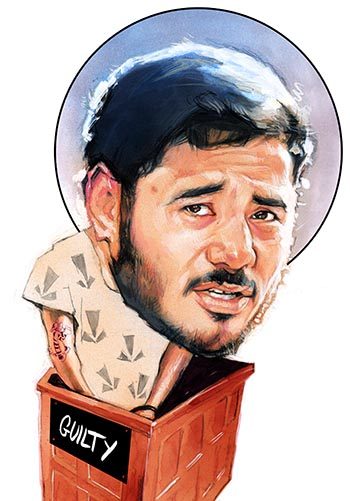


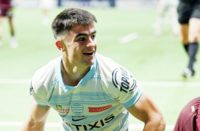
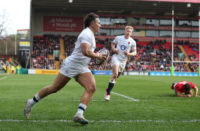























Pingback: connetix